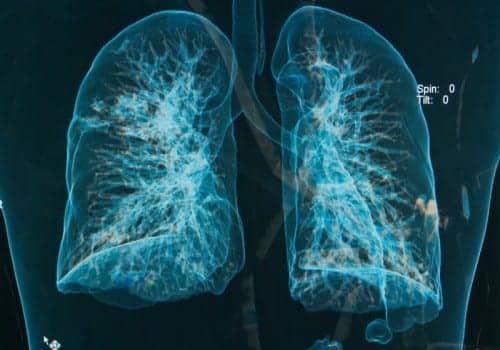Aradigm Corp has released results from its two Phase 3 clinical trials (ORBIT-3 and ORBIT-4) evaluating the safety and efficacy of Pulmaquin, its investigational proprietary formulation of once daily ciprofloxacin for inhalation, in patients with non-cystic fibrosis bronchiectasis with chronic lung infections with Pseudomonas aeruginosa (P. aeruginosa).
The FDA previously granted orphan drug designation and fast track designation for Pulmaquin for non-CF BE in the US and designated it a Qualified Infectious Disease Product (QIDP).
The ORBIT-3 and ORBIT-4 pivotal trials were identical in design except for a pharmacokinetics sub-study that was conducted in one of the trials. The primary endpoint in both ORBIT-3 and ORBIT-4 was an increase in the median time to first mild, moderate or severe pulmonary exacerbation (“PE”). The key secondary efficacy endpoint in both trials was the frequency of PE’s over the 48-week double-blind treatment period.
In ORBIT-4 the median time to first mild, moderate or severe PE was 230 days in the Pulmaquin treatment group as compared to 163 days in the placebo group. This increase in the median time to first PE was statistically significant (p=0.0462) using non-stratified log-rank analysis. In the key secondary efficacy endpoint, there was a 37% reduction in the frequency of PE’s over the 48-week treatment period in the Pulmaquin treatment group as compared to the placebo group. This result was statistically significant (p=0.0007) with a Hazard Ratio of Pulmaquin/placebo of 0.63 using non-stratified binomial regression.
In ORBIT-3 the median time to first mild, moderate or severe PE was 221 days in the Pulmaquin treatment group as compared to 136 days in the placebo group. This increase in the median time to first PE was similar to ORBIT-4 but was not statistically significant (p=0.8488) using non-stratified log-rank analysis. In the key secondary efficacy endpoint, there was a 13% reduction in the frequency of PE’s over the 48-week treatment period in the Pulmaquin treatment group as compared to the placebo group. This result was not statistically significant (p=0.3125) with a Hazard Ratio of Pulmaquin/placebo of 0.87 using non-stratified binomial regression.
The analyses of combined data from both studies resulted in a statistically significant reduction in the number of PE’s over the 48-week double-blind period (Hazard Ratio Pulmaquin/placebo: 0.73; p=0.0015), representing a 27% reduction in PE’s over the period.
More information is available on the Aradigm website.










